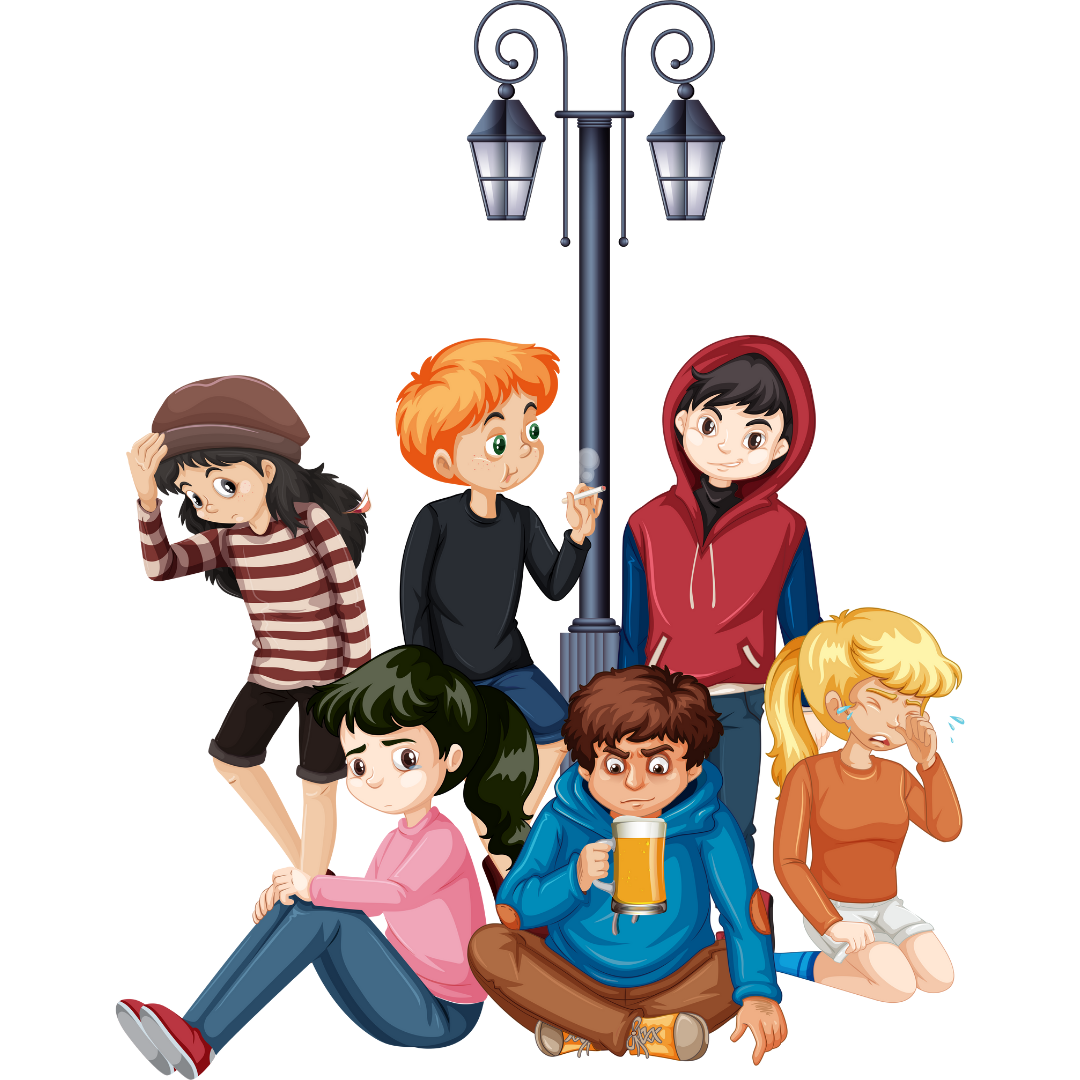How To Help Your Child or Teen Navigate Unhealthy Social Situations
Learning how to cope with difficult situations that kids face oftentimes goes beyond self-care and healthy habits.
Sometimes, it involves a lot of extra work for both the parents and kids.
Whether kids are dealing with something difficult that can be handled with a good cry and a hug or something more serious like a divorce, it's important to be prepared to navigate through an assortment of unhealthy situations successfully.
Unhealthy Social Situations Children and Teens May Face
Children can encounter a wide range of unhealthy social situations. However, many kids face the same challenges as they pass through childhood and adolescence. Here are four of the most common.

- A parent's relationship. Children rely on the predictability of their home life. Unsteady parent relationships often threaten this stability. Even if they are not directly involved, children will internalize the situation's stress and other negative emotions. The emotional toll can be even greater if the relationship issues include substance abuse or physical violence. In addition, problems with child support or alimony can cause stress even after the parents are physically separated.
- An unhealthy relationship of their own. During their teen years, children may encounter unhealthy romantic relationships of their own. They may end up dealing with a wide range of issues, from a partner who is controlling or abusive to someone dishonest or untrustworthy. Sometimes, a lack of relationship experience can cause issues for well-meaning partners.
- Bad influences. Sometimes, kids may engage in risky behavior, such as recreational drug use or dangerous driving, because they are influenced by others. One study even found that teens were more likely to participate in risky behaviors like speeding through yellow traffic lights in the presence of peers. This peer or social pressure can persuade a child or teen to do something they would otherwise not normally do.
- Bullying. Many children find themselves having to deal with an abusive peer. Thanks to an increasingly digital environment, bullying can range from anything from physical to verbal to even cyberbullying. In any form, bullying can cause physical or emotional pain. It can leave a child fearing for their safety or dealing with low self-esteem.
Many children or teens will encounter one or more of these issues at some point in their young lives. Parents need to know how to help their children deal with this adversity.
Accept That Your Child or Teen May Face Adversity
Parents put most of their focus on helping children avoid adversity. When it occurs, it can be difficult to accept. However, sometimes, it's helpful to know that adversity is a natural part of life, especially during child development.
Since the prefrontal cortex, otherwise known as the "rational part of the brain," doesn't fully develop until age 25, teens are more likely to make mistakes without thinking about the consequences of their actions.
In addition, social or peer pressure can influence teens more than common sense or parental advice.
Parents can accept these situations as learning experiences or opportunities for growth instead of focusing on the bad decisions that their children made.
This can help them focus on taking positive steps to address the issues instead of blaming the child for their decisions or themselves for being unable to protect their child from the unhealthy event.
Talk to Your Child or Teen About the Situation

Communication is key when dealing with an unhealthy situation. A child or teen may be unsure of their parent's reaction to their problem and, therefore, unwilling to bring it up.
In some cases, a teenager may feel ashamed or worry that the parent will criticize them for being unable to handle the citation themselves.
A parent can show understanding by expressing their concern about the situation or repeating what the child told them to show that they heard and understood.
These approaches can lead to deeper trust and more open conversations. The more a parent knows about the child's struggles, the better able they will be to provide guidance and support.
Recognize What You Can Do
Whatever a child's actions, the parents need to recognize their role in dealing with the situation. The goal is always to help the child navigate the issue without bringing more stress or pressure to the situation.
In some cases, a mother or father needs to take direct action. For example, if someone is in a toxic or abusive relationship, it is their responsibility to extract themselves from the situation and ensure that they retain custody of their children.
In other instances, such as those that involve issues at school, a parent can act as their child's advocate and ensure that the school is taking proper steps to deal with abuse or bullying.
Talk to Teachers or Guidance Counselors
Communicating with school personnel can also be beneficial. There are several reasons to talk to a teacher or guidance counselor. First, education personnel can often provide a different perspective on difficult situations children may be navigating.
A parent can use this additional information to help guide their child through this difficult scenario.
Also, teachers and guidance counselors are typically willing to team up with parents to find the proper advice and guidance. It is much better to provide a unified message and similar advice. Failing to do so might lead to confusion and make communication more difficult.
Talk to Other Parents
Speaking with other parents can also provide insights and different perspectives on the situation. A parent can also raise concerns about bad influences and poor behavior.
Sometimes, other parents may be unaware of their child's bullying behavior. They may also be willing to help resolve the issue.
In other cases, they may seek to deflect blame away from their child. Because of this possibility, it is best only to approach parents if it has the potential to be constructive or resolve the situation. Otherwise, it is not worth the effort.
Create an, "I'll Come Get You" Policy
In many cases, kids can cope with a difficult situation based on the parenting style they were raised under.
Different parenting styles can range from authoritative, authoritarian, permissive, and uninvolved based on the amount of control and acceptance/encouragement parents reinforce within their kids.
Luckily, there is always time to adapt to different parenting styles if one is ineffective. For example, parents can adapt by establishing an "I'll come to get you" policy. Tell the child they can request a ride from you anytime.
You promise to pick them up with "no questions asked." The goal is to have them feel like they can leave the unhealthy scene without fearing punishment or having to answer questions for you.
Let Them Know That They Have Options
Teens have limited experience. They may view their group of friends or their significant other as the "end-all-be-all." Because of a limited perspective, they may not realize they can always establish healthier relationships or friendships with positive influences.
Parents can communicate with their teens to let them know they have more options. They can find friends who are not toxic or who do not pressure them to engage in risky behavior such as drinking or unsafe sex practices.
This perspective helps teens understand that these behaviors are not necessary for acceptance.
Seek Professional Help
If a parent isn't sure of how to help their child navigate the unhealthy social situation, outside help may be necessary. A child may need professional counseling help to deal with the effects of a traumatic experience or the stress of an unhealthy situation.
In some instances, legal help from a family law attorney may become necessary, especially if the child has done something that requires a legal resolution or the parents need to coordinate a separation or custody.
In other cases, a counselor may also be necessary to aid parents in communication and coping skills with their kids.